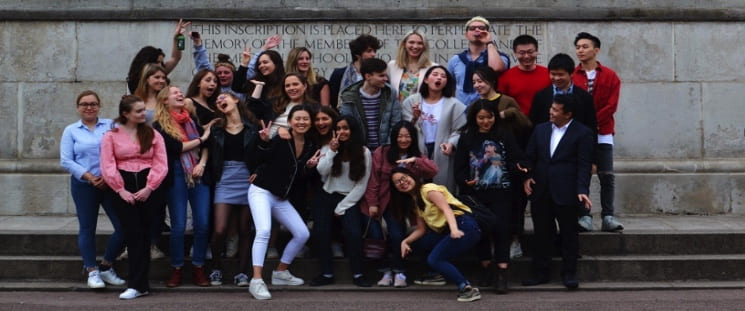UCL’s new BSc Social Sciences graduates offer a global perspective on social change
By Blog Editor, IOE Digital, on 4 July 2019

Claire Cameron, Ann Phoenix, Ashly Fuller, Charlotte Cook, Miya Baldwin.
We live in interesting times. News reports from every continent are by turn puzzling, alarming and heartening, particularly as it is increasingly clear that there are deep divisions in how any new event is received.
In the UK, Brexit and the Extinction Rebellion, the Syrian War and various migration crises are dramatic examples, raising fundamental issues about the relationship between individuals, society and international perspectives. It has never been more urgent to have the analytic tools to understand social currents and to be able to make informed decisions about how and where to take a stand. It is here that the new UCL BSc Social Sciences degree makes a distinctive contribution.
Students graduating this month are the first cohort from a programme taught by leading research scholars, at all stages of their careers, who bring a range of disciplinary perspectives to bear on contemporary issues, while putting these in historical context. It offers a global perspective on social change, providing theoretical and practical tools for understanding and shaping future policy and practice.
Students’ final research projects demonstrated their skills in shaping new evidence on issues that matter to them. Charlotte Cook discovered that one reason why gymnasium weight rooms cause apprehension for women is due to the way ‘they construct their own femininity and how critical they are of society’s ideals surrounding femininity’. But she also found that commercial gyms reinforce gender divisions in the way they organise the space. There are few women staff and ‘the division of weights and cardio equipment contributes to women’s anxieties and to the idea that “weights are for men” ’.
Charlotte believed the BSc Social Sciences was ‘a fantastic platform’ for her research because of its interdisciplinarity, allowing her to ‘combine sociology, gender studies, psychology and public health theory’ to analyse her topic in an innovative way. She concluded that ‘the rigorous research methods training meant that I felt confident to go out in the field and even develop a methodology of my own’.
Meanwhile, her fellow student Laura Salagnac investigated attitudes towards immigration in the south of France through secondary analysis of European Social Survey data. She found widespread discriminatory views about immigrants, particularly those who are low skilled, from poor countries or Muslim backgrounds. Laura argued that ‘increasing educational attainment levels and promoting inclusiveness would lower prejudice against certain minority groups’.
These studies and many more were presented at the recent UCL Big Social Science Festival. Graduating student Ashly Fuller said the day had provided ‘an incredible opportunity to discover more about the projects our peers have been working on for the past year and revealed a range of fascinating and diverse research topics. From women’s menopausal experiences, to the analysis of Indian primary education, and the understanding of psychological factors linked to joining a cult – all dissertations approached social sciences from a particular angle, demonstrating the versatility and breadth of the degree’.
As Charlotte reflected, ‘I chose this degree based on a passion for sociology, however, was drawn in by the varying perspectives the interdisciplinary set up allowed for. As I predicted, it has taught us how to critically analyse many situations and this skill will be undeniably useful in the workplace and beyond’. Our first set of graduates tell us that they very much appreciate being able to demonstrate that they have vital statistical expertise as well as excellent critical and communication skills. Together, the mix of method, content and critical engagement provides students with skills for informed and ethical engagement in contemporary disputes about global challenges.
 Close
Close



